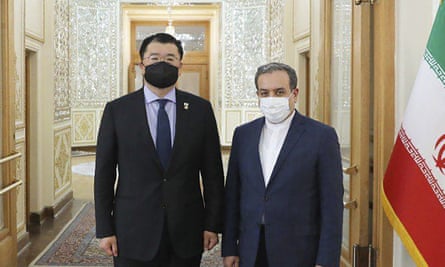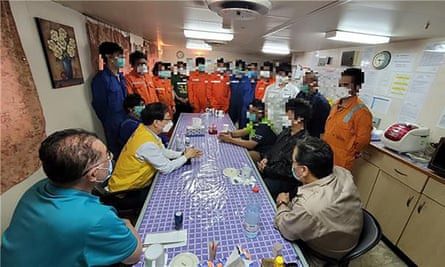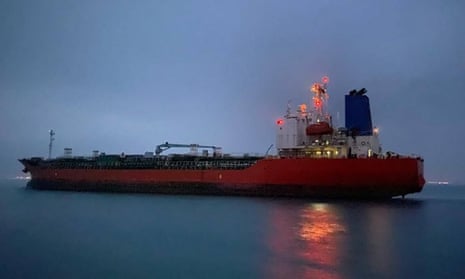Iran has released a South Korean ship that was seized in January after the conclusion of an investigation and at the request of Seoul’s government, the Iranian foreign ministry has said.
There was no immediate sign that a parallel three-way agreement had been reached between Seoul, Tehran and Washington to release as much as $7bn (£5.1bn) in Iranian assets that had been frozen in South Korean bank accounts because of US sanctions.
Iran has for more than a year battled to secure the release of the funds, which are mainly revenue from oil exports to South Korea. US sanctions have made it impossible for the money to be released.
Iranian authorities seized the Hankuk Chemi, a chemical tanker, in the strait of Hormuz on 4 January. They accused it of polluting the waters with chemicals and breaching environmental regulations.
Some of the vessel’s 20 crew had already been released, but had stayed on board to carry out maintenance work.
“Iran, with long coastlines in the Persian Gulf and the Sea of Oman, stresses full compliance with maritime regulations, including environmental protection, and monitors every violation in this respect,” said Saeed Khatibzadeh, a foreign ministry spokesman.
The exemplary record of the ship’s captain had also been taken into account, the ministry added.

A South Korean foreign ministry official told reporters that both sides had agreed the ship and the funds were not related issues and that Seoul promised to help get the money released.
“We have expressed our firm willingness to resolve the fund issue,” said the official, who declined to be identified. South Korean diplomats have visited Tehran promising to do their best to secure the release of Iranian oil revenues. It seems unlikely the ship has been released without any implicit or explicit understanding about the release of the frozen funds.
The South Korean ministry said the Hankuk Chemi had left Iran after completing administrative procedures, but made no mention of the demand to unfreeze the accounts.
“The captain and sailors are in good health,” the ministry added.
South Korea had always said the vessel carrying 7,200 tonnes of petrochemicals did not cause any pollution, adding that Iran dropped a plan to pursue criminal charges against the shipping company.

Iran has denied the seizure of the tanker and its crew amounted to hostage-taking, saying it was South Korea that was holding Iranian funds hostage. There had been reports that the South Korean prime minister, Chang Sye-kyun, was to travel to Tehran.
Iran has been hit by a fourth wave of Covid-19 with new infections at record highs of more than 20,000 a day after the Iranian spring holiday, so the demand for cash to buy vaccines is acute.
